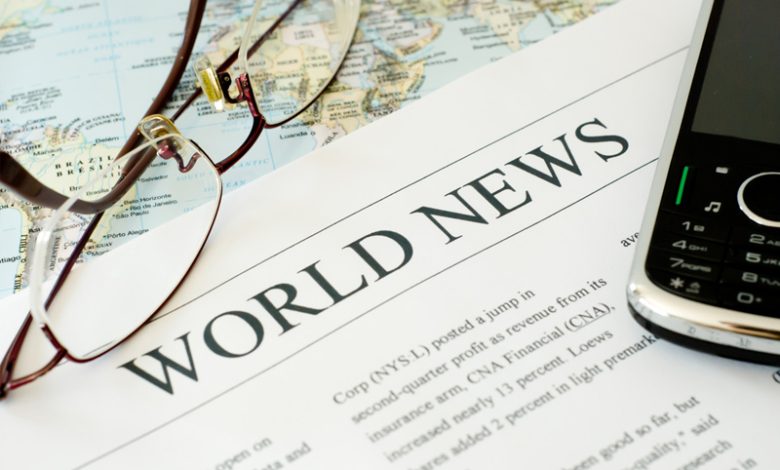
Pope Arrives in UAE for Historic Gulf Visit, Condemns Yemen War
By Sylvia Westall and Philip Pullella
ABU DHABI – On Sunday, Pope Francis made history by becoming the first pope to visit the Arabian Peninsula, coinciding with his strongest condemnation of the ongoing war in Yemen. The United Arab Emirates (UAE), where he was received, plays a prominent military role in this conflict.
Before departing for Abu Dhabi, the pope voiced his deep concern regarding the humanitarian crisis in Yemen. During his regular Sunday address in Vatican City, he called on all parties involved to uphold a fragile peace agreement and assist in delivering aid to millions who are facing hunger.
"The cry of these children and their parents rises up to God," he told tens of thousands gathered in St. Peter’s Square. "Let us pray strongly because they are children who are hungry, who are thirsty, they don’t have medicine and they are in danger of death," he expressed prior to boarding his flight.
In response, the UAE government welcomed the pope’s message regarding Yemen, with Minister of State for Foreign Affairs Anwar Gargash describing the peace agreement as a historic breakthrough. "Let us assure its implementation and make 2019 the year of peace in Yemen," he stated following the pope’s arrival.
The ongoing conflict in Yemen has already claimed tens of thousands of lives, and the United Nations warns that millions are on the brink of starvation. The stability of aid deliveries heavily relies on the truce being maintained to prevent fighting from disrupting access to critical aid.
Upon his arrival, Pope Francis was welcomed by Abu Dhabi’s Crown Prince Sheikh Mohammed bin Zayed al-Nahyan, who accompanied him to a meeting with Sheikh Ahmed al-Tayeb, the Grand Imam of Al-Azhar mosque and university. The pontiff embraced the Imam, and both leaders are scheduled for discussions with Pope Francis on Monday.
The UAE is a key player in the Saudi-led coalition against the Houthi movement in Yemen. The United Nations is currently working to implement the ceasefire and troop withdrawal agreement reached in December at peace talks, which is seen as a potential stepping stone towards ending the conflict.
Vatican officials have indicated that it remains uncertain whether Pope Francis will publicly or privately address the delicate situation in Yemen during his visit to Abu Dhabi, which aims to foster interfaith dialogue.
"NEW PAGE"
The pope is also set to engage with Muslim leaders and hold an outdoor mass for approximately 135,000 Catholics, marking an unprecedented event on the Arabian Peninsula. He has described this visit as an opportunity to write "a new page in the history of relations between religions."
The UAE has dubbed 2019 its Year of Tolerance, and the visit is intended to showcase its history as a "cradle of diversity." However, the UAE has faced criticism from human rights organizations for its imprisonment of activists, including Ahmed Mansoor, an Emirati serving a 10-year sentence for criticizing the government on social media. Amnesty International has called on Pope Francis to raise awareness about such detentions with his hosts.
The UAE is home to around 1 million expatriate Catholics, predominantly from the Philippines, with an estimated additional 1 million Catholics living in other parts of the Arabian Peninsula. While the UAE is often described as one of the more lenient environments for Christian worship in the Gulf, it shares restrictions with its neighbors against dissent or criticism of its leadership.
Except for Saudi Arabia, all Gulf states permit Christian worship in churches or designated premises. In Saudi Arabia, non-Muslim worship is conducted in private homes or embassies.
Abu Dhabi’s Crown Prince is allied with Saudi Arabia’s Crown Prince Mohammed bin Salman, who has made overtures to Christian leaders as part of efforts to modernize the conservative kingdom. However, bin Salman’s international standing has been marred by the assassination of journalist Jamal Khashoggi at the hands of Saudi agents in Istanbul.
Pope Francis has previously visited several predominantly Muslim nations, utilizing these occasions to advocate for inter-religious dialogue and denounce violence committed in the name of faith. The UAE ambassador to the United States remarked that the pope’s visit symbolizes coexistence and respect in combating extremism throughout the Middle East.
 GOOGL
GOOGL  META
META 

